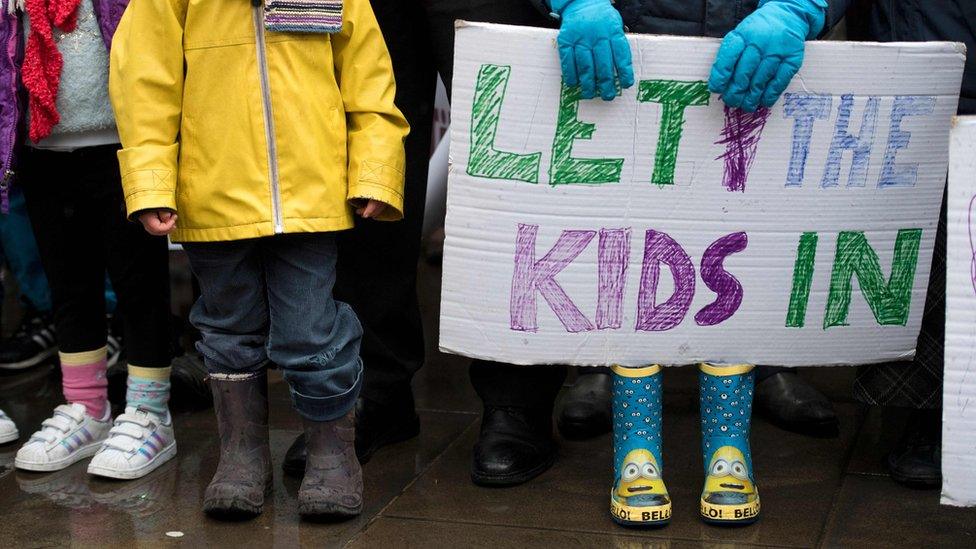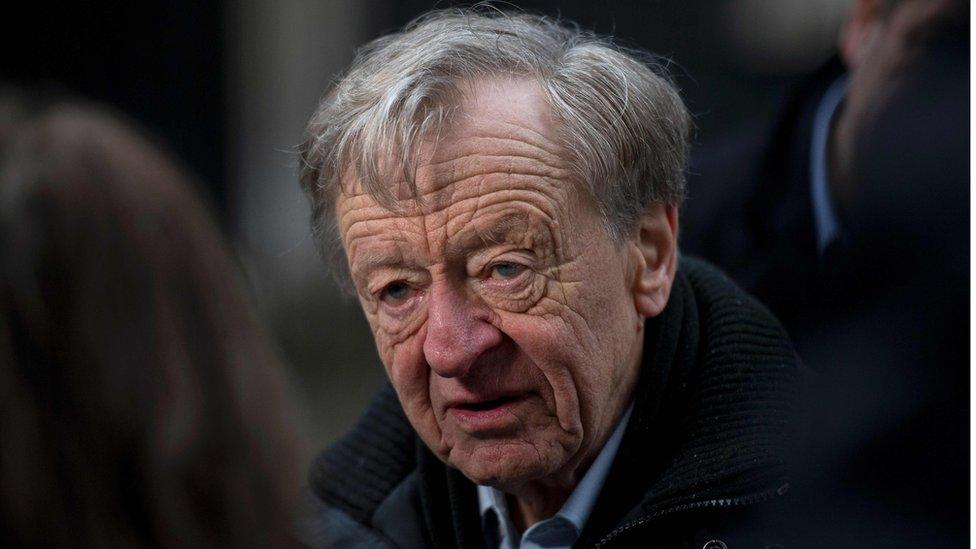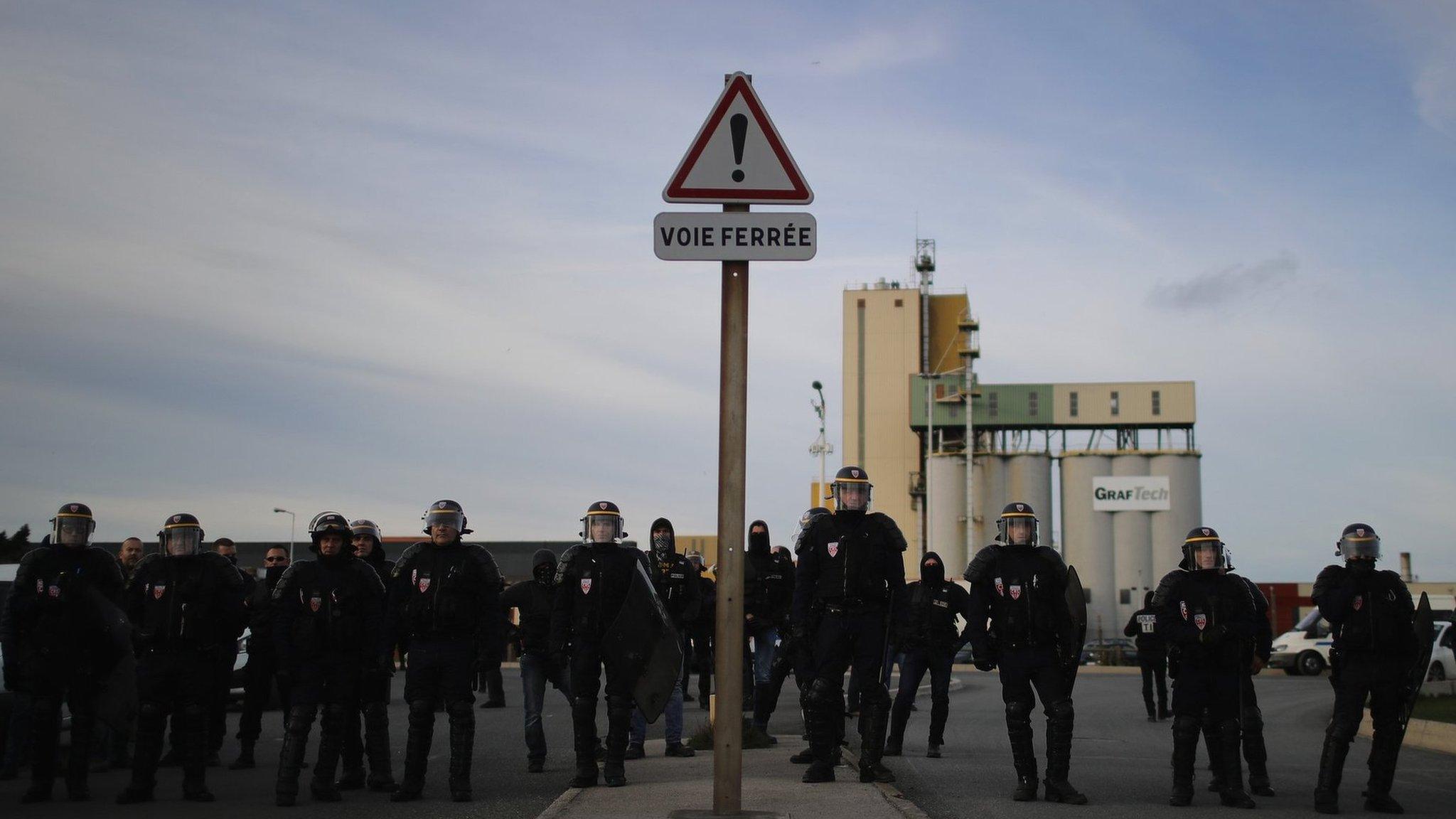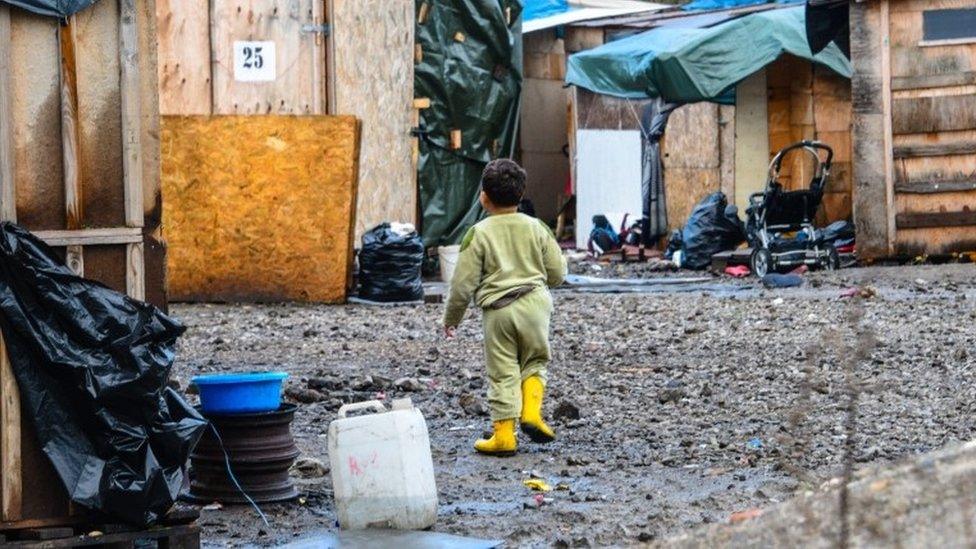Children's commissioners call for Dubs amendment reversal
- Published

The government says the Dubs amendment, letting lone child refugees into the UK, encourages people traffickers
The UK's four children's commissioners have written to the government asking for a rethink of a decision to end a scheme bringing in lone child refugees.
Campaigners hoped 3,000 children would come into the UK under the so-called Dubs amendment, but last week the home secretary said it would be 350.
The commissioners for England, Wales, Northern Ireland and Scotland said they have "deep concern" after the decision.
The government said it was committed to resettling 3,000 vulnerable children.
A spokeswoman said resettling children under the Dubs amendment was "just one way we area helping."
"We have also committed to resettle up to 3,000 vulnerable children and family members from the MENA [Middle East and North Africa] region and 20,000 Syrians by the end of this Parliament."
The Dubs amendment, designed by the Labour peer and former child refugee Lord Dubs, aimed to help some of the estimated 90,000 unaccompanied migrant children across Europe.
The commissioners wrote that the number of children who had come in under the scheme so far "falls significantly short of expectations" and, as a signatory to the UN Convention on the Rights of the Child and the Optional Protocol on the Sale of Children, the UK should "play a far greater role".
The letter, signed by Anne Longfield, Children's Commissioner for England, and Tam Baillie, Sally Holland and Koulla Yiasouma - her counterparts in Scotland, Wales and Northern Ireland - called on Home Secretary Amber Rudd to "consider carefully the plight of the many thousands of lone child refugees in Europe who are currently at risk of exploitation and trafficking".
"We urge the government to act humanely and responsibly, and to maintain a positive commitment to the Dubs scheme within a comprehensive strategy to safeguard unaccompanied child refugees within Europe," it read.

The amendment to the Immigration Act 2016, requiring the home secretary to bring a specified number of unaccompanied refugee children to the UK, is named after former child refugee Lord Dubs
The letter has received praise from Labour MP Yvette Cooper, who chairs the Home Affairs Select Committee.
She said: "This is a very serious response from the children's commissioners. They make clear that far from avoiding traffickers, by ditching the Dubs scheme, the government risks pushing more children back into the arms of smuggler gangs.
"The government should listen to this call from the commissioners whose very purpose is to protect the welfare of vulnerable children and reopen the Dubs scheme now."
'It acts as a draw'
Ms Rudd has defended the decision in the House of Commons, saying it had been made after France raised concerns that the amendment could be encouraging more children to make the perilous journey to Europe.
"I am clear that when working with my French counterparts they do not want us to indefinitely continue to accept children under the Dubs amendment because they specify, and I agree with them, that it acts as a draw," she said.
"It acts as a pull. It encourages the people traffickers."
A statement from a government spokeswoman added: "We have a proud history of offering protection to those who need it and children will continue to arrive in the UK from around the world through our other resettlement schemes and asylum system."
But critics, including the Archbishop of Canterbury, the Most Rev Justin Welby, and the head of the Catholic Church in England and Wales, Cardinal Vincent Nichols, have called for a reversal of the decision.
A legal challenge against ending the scheme is expected to reach the High Court in May.
- Published9 February 2017

- Published8 February 2017
- Published9 February 2017
